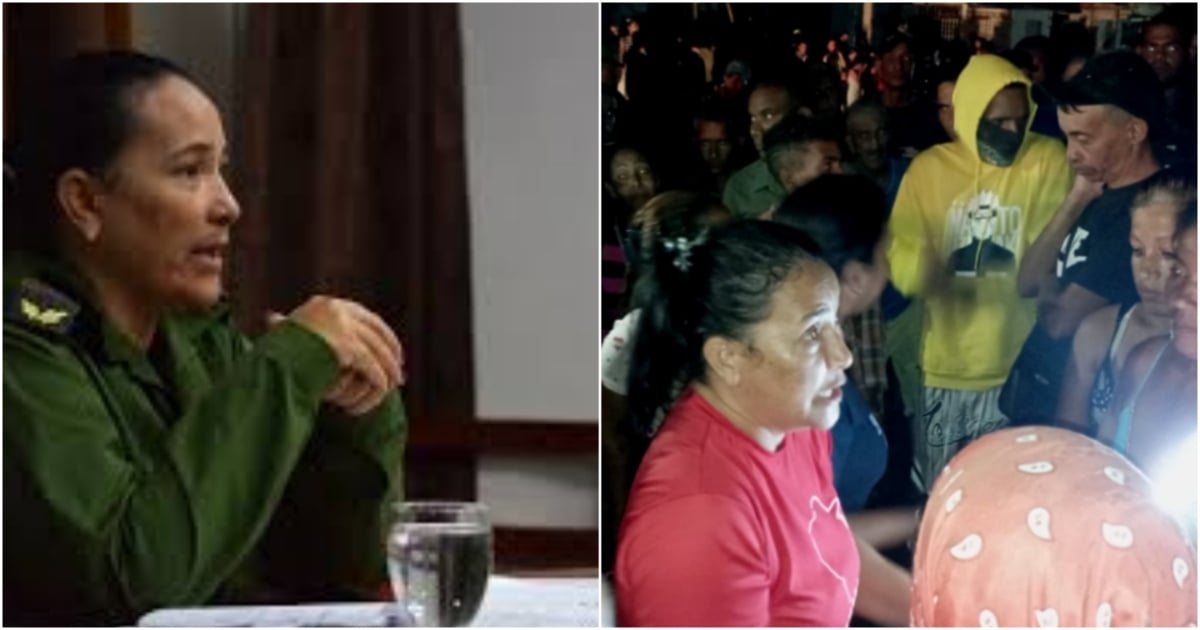Yudelkis Ortiz Barceló, the first secretary of the Communist Party of Cuba (PCC) in Granma, has taken a firm stance against criticisms circulating on social media. This comes just hours before she is set to address the residents of Bayamo who took to the streets in protest. "We live in a world where the freedom to hate has never been more rampant on social media... Let's not play into the hands of those who jeer and whistle from the sidelines without getting involved in the game," she expressed on Facebook.
Ortiz Barceló, aligning with state propaganda, remarked, "It's a complicated game, but undoubtedly there will be a winner, and that is the united people of Cuba, as Fidel taught us."
Growing Unrest Amid Power Outages
In the early hours of Friday, May 24, new public demonstrations erupted in at least two Cuban cities: Bayamo, located in Granma province, and Cienfuegos. These protests were fueled by ongoing power outages and severe shortages. In Bayamo, numerous residents took to the streets across various neighborhoods, demanding immediate solutions and chanting "We don't want more talk!"—a clear jab at the authorities' empty promises.
Regime's Response: On the Ground and Online
Facing public pressure, the regime responded both physically, by deploying special forces and Communist Party officials, and digitally. Alongside the usual internet blackouts and connectivity issues on mobile devices, an aggressive campaign on official social media aimed to portray an image of calm, dialogue, and complete control over the situation.
Videos revealed Bayamo residents confronting Ortiz Barceló, who was surrounded by Interior Ministry and military officers. Meanwhile, pro-government profiles began sharing images of empty streets, lit streetlights, accompanied by phrases like "everything is calm" or "peaceful dialogue with the people."
Immediate Measures: Food Fairs as Quick Fixes
In response to the protests, the Cuban government quickly organized food fairs in several municipalities within Granma province, including Pilón. Images shared on Facebook by Dayamis Silva Lara, a PCC worker in Pilón, showcased stalls with agricultural products, including corn and other basic foods, under the banner of a "Saturday fair accessible to all."
These food fairs are part of a familiar pattern of distributing basic goods as an immediate remedy for public discontent, a strategy that has been employed in other provinces, such as Santiago de Cuba, in recent times.
Understanding Cuba's Current Challenges
What prompted the recent protests in Bayamo and Cienfuegos?
The protests were sparked by long-lasting power outages and the dire scarcity of essential goods, prompting citizens to demand immediate actions from the authorities.
How did the Cuban government attempt to manage the situation?
The government responded with a physical presence of special forces and Communist Party officials, as well as a digital campaign on social media to project an image of peace and control.
What role do food fairs play in Cuba's response to public dissent?
Food fairs are organized as a quick measure to alleviate public dissatisfaction by providing basic goods, following a strategy used in other regions facing similar unrest.
